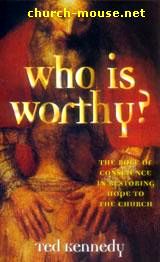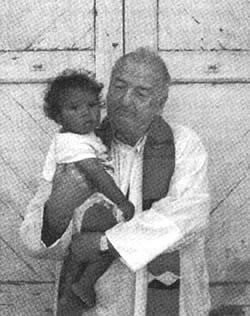What is modern? what is traditional?
Editor’s comments from Tain Volume 5, June 2000
A wise person will be both modern and traditional, as Terry Eagleton pointed out. While reevaluating the tradition, one can also insist on assessing the latest developments in the light of ancient wisdom. Those who have a strong knowledge of their traditions are equipped to analyse and assess the various developments of the modern world. We are not rootless, we have some points of reference.
Three contributions in this issue point towards some of those anchors, the article on the Tain, that on the Book of Kells, and the review of Ted Kennedy’s book. While it is modern to give priority to making money and self-promotion, the words enshrined in the gospels suggest that it is traditional to be concerned with the common good, to take seriously suffering and need, to live in the shadow of death and hope of resurrection.
In supporting the Rainbow Sash movement for gay rights in the Church, and in calling for defence of aboriginal rights, Kennedy argues that his view is a traditional one. On these points, he challenges Archbishop George Pell’s claim to be a traditionalist. Obviously more writing is needed to give adequate coverage to such matters but we are making a start.
Choice of cover image

Ted Kennedy explains why he chose the image of Rembrandt’s The Return of the Prodigal Son for the cover of his book:
Luke the evangelist, according to legend, was a painter. Certainly he wrote with an artist’s eye for symbolism. . .
It was similarly so in the work of Rembrandt. These two masters of intense imagery – Luke with words, Rembrandt with paint – show themselves capable of pushing the boundaries of imagined human feeling to hitherto unheard-of heights. . .
[In the parable of the Prodigal Son] the father forgoes what were thought to be the requirements of patriarchy and adopts what was deemed the less dignified role of mother. Rembrandt takes over with the portrayal of the Father’s embrace, one hand male, the other female. . .
Between God’s love and those, who turn to it, let no-one place an obstacle.
Who Is Worthy?
Sydney priest challenges Archbishop George Pell
A key person in the web of Australian Irish links is Ted Kennedy, parish priest of St Vincent’s, Redfern, in inner Sydney. Last month he published a red-hot book called Who is Worthy? The Role of Conscience in restoring Hope to the Church. This small but demanding book is an important contribution to the current rethinking and adaptation of Australian Irish values and practices.
Kennedy confides his passionate concerns over the treatment of gay people and the Aboriginal community by a key leader of the Australian Catholic Church, namely Archbishop George Pell. Speaking as a pastor of many years’ experience and, at the same time, as a patient scholar of theology, he is angry about what he sees as a dangerous return to the closed mentality which he experienced in his youth.
Those who are concerned about the issues he raises, or with the debate about the future of Catholicism and Christianity, will find here food for thought. Indeed, what he has to say is of interest to all, believers and doubters, who are concerned about the vacuum in public discussions of morality.
Three distinctive features of Kennedy’s response to Pell’s policies deserve mention. The first is that he draws on the striking but neglected writings on conscience by John Henry Newman. The second is that, in the end, he bases his case on the radical teachings of Jesus Christ and a selection of radical theologians down the ages.
The third is his sample history of relations between the Catholic Church and Aborigines. Such features are relevant to our day and deserve wide discussion.
Some elements of Kennedy’s views are simple while others are complex. For instance, you will see that he is not opposed to authority as such but rather to a particular use of it. Further, while he is critical of Vatican policies on sexual morality, he praises Papal initiatives in support of Aborigines. While Kennedy criticises Pell over his teachings on sexual morality he seems not to have noted that Pell has supported some of the positive Papal positions on Aboriginal issues. Pell, indeed, publicly opposed the racism of Pauline Hanson and One Nation.

Ted Kennedy and Duane Captain
Ironically, Kennedy’s strong argument for the rights of conscience applies also to his opponent. The mystery of human freedom is such that by following his conscience the archbishop too contributes to the common good. However, as the archbishop himself implies, being sincere is not the same as being right.
Since all humans are fallible, public debate is needed when evaluating issues of public morality. Thus, each of us, also, is called to contribute to the continual enquiry and reasoning needed on issues such as homosexual rights, Aboriginal rights and the role of conscience. As we seek to forge a path forward, we are in Ted Kennedy’s debt for sharing with us these heartfelt, challenging and relevant insights.
Ted Kennedy, Who is Worthy? The Role of Conscience in Restoring Hope to the Church, Sydney, Pluto Press, 2000. $20.